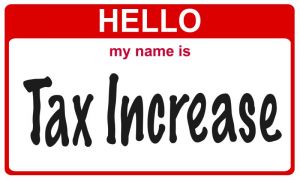While operating through some of the toughest economic times in history, the Peachtree City Water and Sewerage Authority (PCWASA) has received evidence that its fiscally conservative policies and sound management practices have resulted in a solid financial position for the sewer utility this year.
That evidence comes from a “clean” audit opinion from Mauldin & Jenkins Certified Public Accountants, following the firm’s recent independent auditor’s report. The report revealed that the financial statements of PCWASA from this past fiscal year (2011) present fairly, in all material respects, the financial position of the utility as a component unit of the city of Peachtree City.
The financial statements of the Authority for the year ending Sept. 30, 2011, including the changes in financial position and cash flows, were in compliance with generally accepted U.S. accounting principles, auditors determined.
Miller Edwards and David Irwin, Certified Public Accountants with Mauldin & Jenkins, presented the FY 2011 audit results to the PCWASA board of directors and management, noting several indicators of sound financial practices at the Authority.
The clean audit opinion was important, said Edwards. But the auditors also noted the section in the report titled “management’s discussion & analysis” (MD&A), which is not a requirement of the auditing process. It is an attempt to provide the public with a narrative overview and analysis of the financial activities and highlights of the Authority during this past fiscal year, noted Stephen Hogan, PCWASA General Manager.
Hogan and Lynda Price, business manager for the Authority, were instrumental in putting the MD&A together, while working with the auditors during the review process.
“That (MD&A) is not required, but since the Authority has provided it, hats off to you,” said Edwards, during his presentation of the Auditor’s Report. “It was a banner year for operations.”
Edwards said the “banner year” was due to WASA’s current ratio of unrestricted assets to current liabilities, which is 4:1, another indicator of sound financial positioning. He went on to note that WASA had $11.6 million dollars in net assets, which reflects a significant, necessary investment in the maintenance and operations of the system.
The independent auditors also noted that the difficult decision to raise rates at the end of 2010 was the right one.
“It was a healthy decision to have the rate increase,” Edwards told the WASA board. “It allows you to do what you need to do to maintain the system.”
Edwards also referred to the authority’s “healthy looking cash flow statement,” which is the cash flow generated from operations. There are two questions related to cash flow that every utility must consider, Edwards noted: One, did operations generate a positive cash flow; and two, did operations generate sufficient cash flow? PCWASA achieved both of these objectives during FY 2011, he concluded.
“We are very pleased with the clean audit opinion that we received from this past year’s Independent Auditor’s Report,” said Hogan. “I think it reflects positively on the authority in several ways, beginning with our credibility in presenting our financial statements fairly and accurately during a time when some businesses and governments have not always adhered to compliance. In addition, the report shows that we are making fiscally responsible decisions with our ratepayers’ dollars, while not compromising the integrity of the public’s sewer system, the importance of environmental protection, and the need to invest in our infrastructure for the future.”











Leave a Comment
You must be logged in to post a comment.